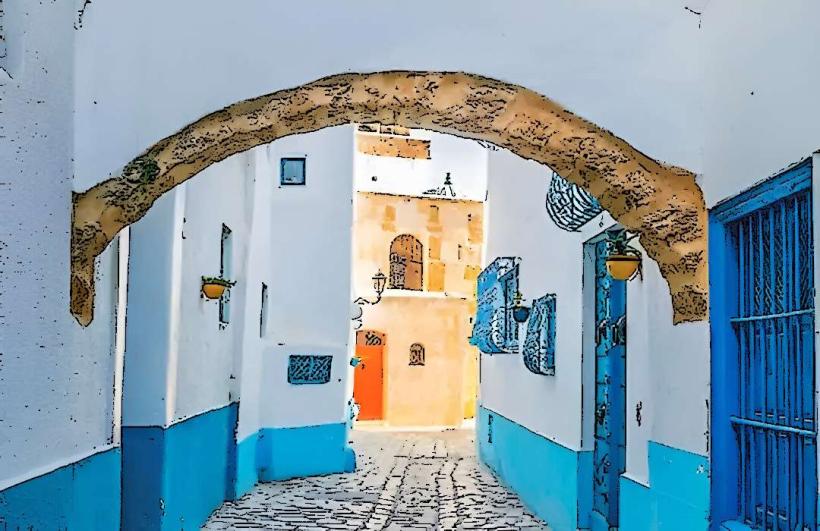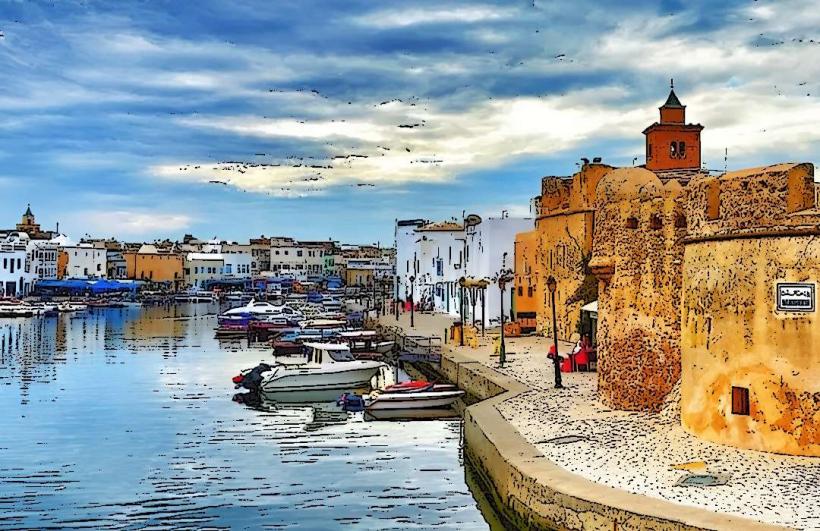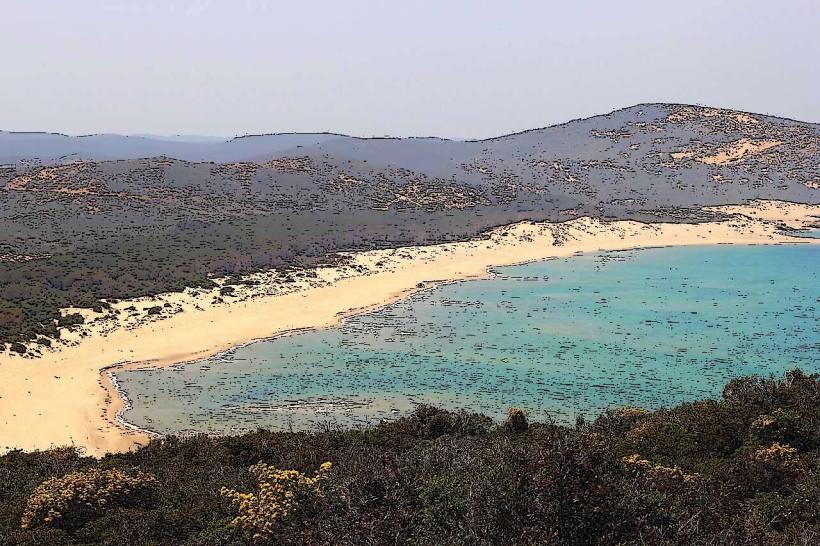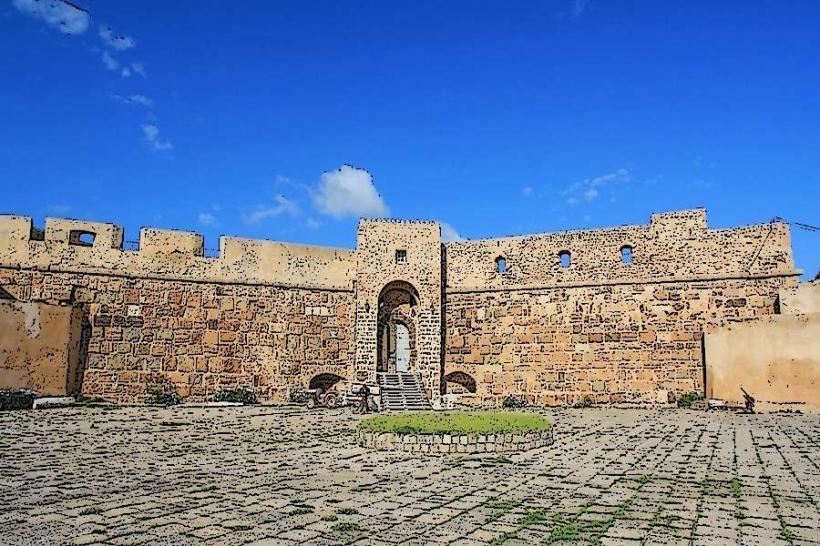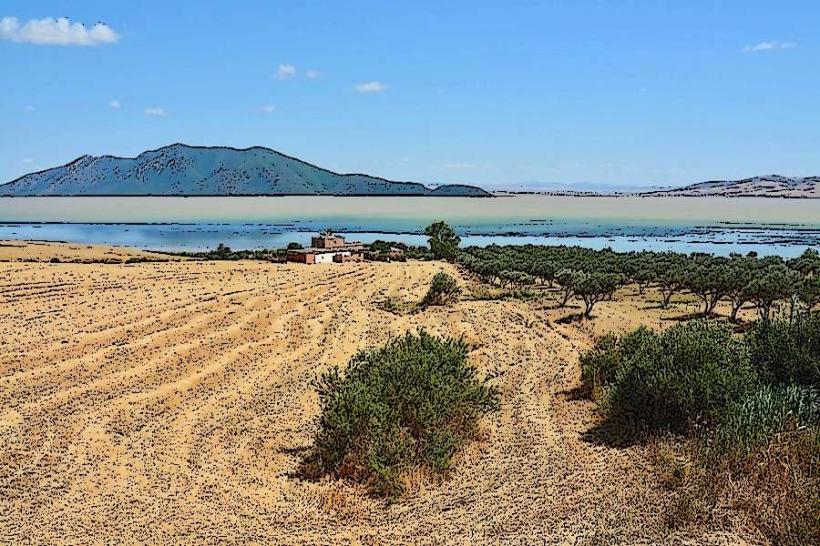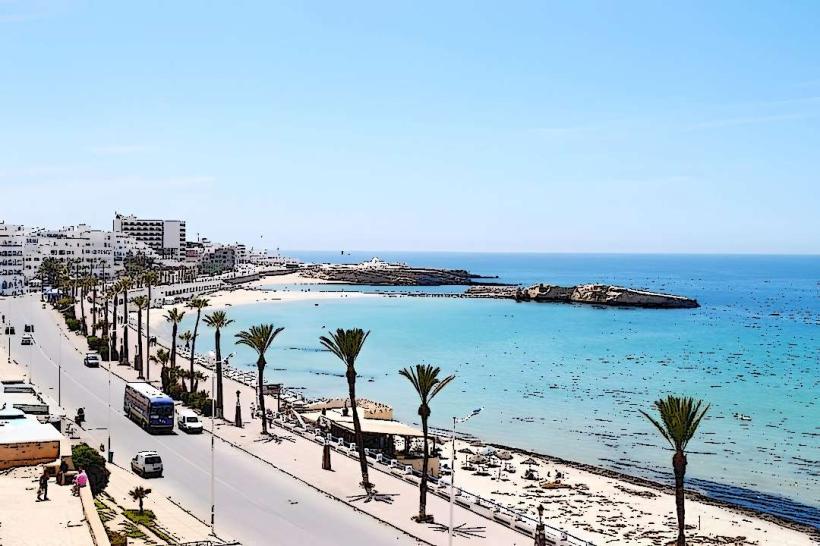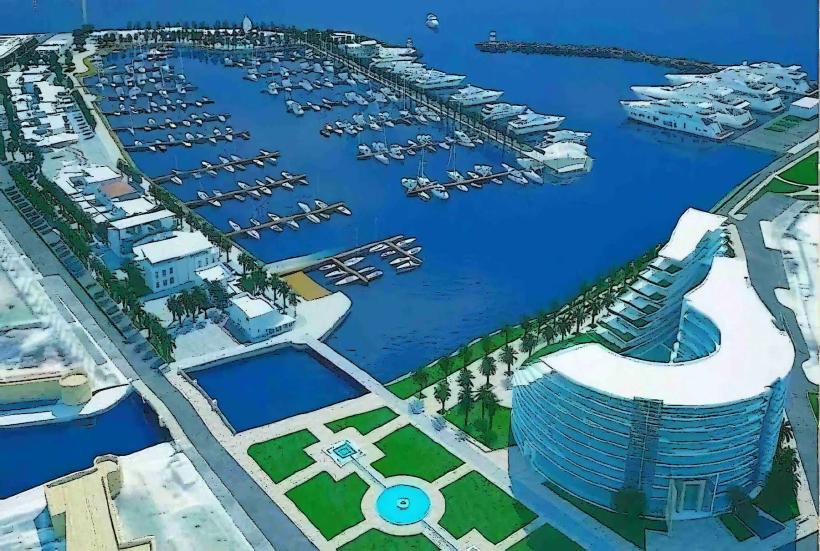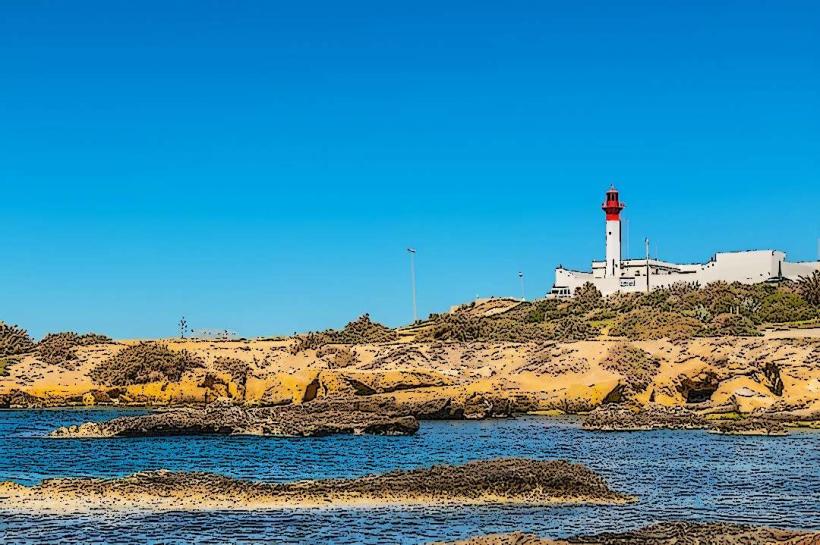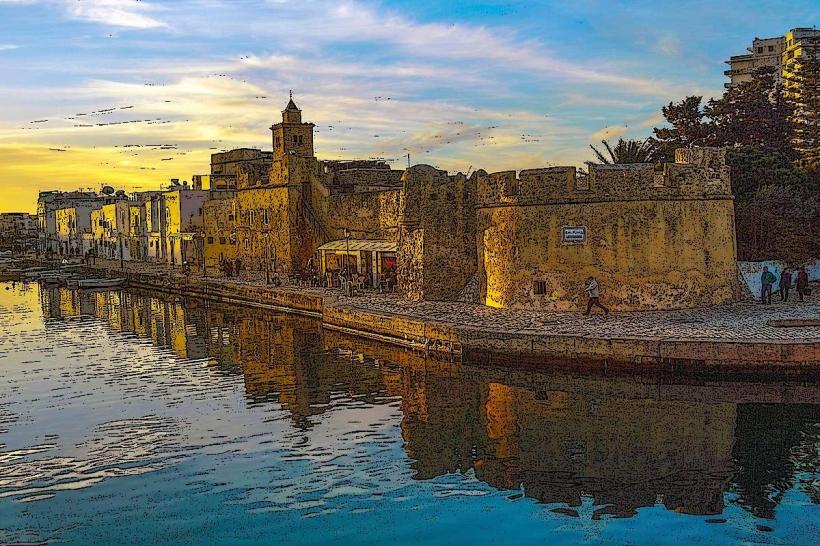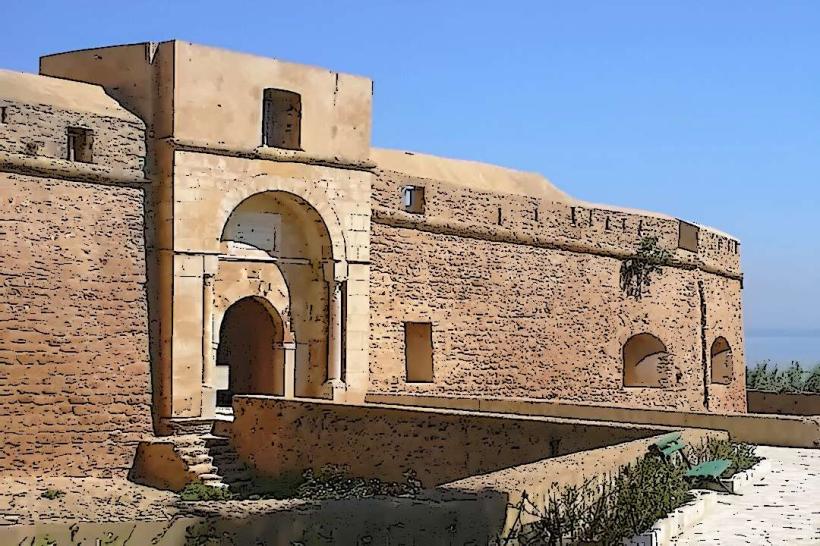Information
City: BizerteCountry: Tunisia
Continent: Africa
Bizerte, Tunisia, Africa
Bizerte is a coastal city located in northern Tunisia, along the Mediterranean Sea. It is one of the oldest cities in Tunisia and holds a significant place in the country’s history and development. Today, Bizerte is known for its rich historical heritage, beautiful beaches, and the Bizerte Lagoon, making it a popular destination for tourists. It also has a vibrant economy centered on fishing, industry, and tourism.
Geographic and Environmental Context
Location: Bizerte is situated approximately 65 kilometers north of Tunis, the capital of Tunisia, and lies on the northernmost point of the country. It is strategically positioned at the entrance of the Bizerte Lagoon, one of the largest natural harbors in the Mediterranean.
Climate: The city experiences a Mediterranean climate, characterized by hot, dry summers and mild, wet winters. The weather conditions make Bizerte a popular destination for beach tourism, particularly during the summer months.
Landscape: The city is known for its coastal beauty, with long stretches of sandy beaches, rocky cliffs, and the Bizerte Lagoon, a protected area that attracts both nature lovers and those interested in water sports.
Historical and Cultural Overview
Ancient History: Bizerte’s history dates back to Phoenician times, when it was originally founded as the port city of Hippo Diarrhytus. The Phoenicians used Bizerte as a trading post and a strategic base for their naval operations. The city later became an important part of the Roman Empire.
Islamic Era: Following the arrival of Islam in the 7th century, Bizerte became a significant Islamic port. The city’s history during the Islamic period is marked by military importance, as well as its role as a center of trade and naval activities.
French Colonial Era: Bizerte played a critical role during the French colonial period, particularly because of its large military base and the Bizerte harbor, which was one of the most important naval stations in the Mediterranean. The French maintained a military presence in the city until Tunisia gained independence in 1956.
Modern Era: Today, Bizerte combines its ancient heritage with modern development. It has transformed into an industrial and commercial hub, while also preserving many of its historical and cultural landmarks.
Economy
Fishing: As a coastal city, fishing remains a vital part of Bizerte’s economy. The city has a large fishing fleet, and seafood, particularly anchovies, sardines, and octopus, is a major product of the region.
Industry: Bizerte has developed as an industrial city with a focus on shipbuilding, textiles, and oil refining. The Bizerte Industrial Zone hosts a number of factories and plants that contribute to the local and national economy.
Tourism: Tourism is increasingly important to Bizerte’s economy. The city’s beautiful beaches, historical sites, and proximity to the Bizerte Lagoon attract both domestic and international tourists. In particular, eco-tourism and nature-based activities are on the rise.
Agriculture: The surrounding region is also involved in agriculture, producing olives, grapes, citrus fruits, and vegetables. The area around Bizerte is part of Tunisia’s olive-growing belt, and olive oil production plays a role in the local economy.
Architecture and Urban Layout
Medina of Bizerte: The Medina of Bizerte, the old town, is home to narrow streets, whitewashed buildings, and traditional Tunisian architecture. It features several mosques, souk (markets), and historical buildings that offer visitors a glimpse into the city’s past.
The Kasbah of Bizerte: The Kasbah (fortress) in Bizerte dates back to the Ottoman period. It was constructed to protect the city from invaders, and its strategic location on the sea offers spectacular views of the Mediterranean.
French Colonial Architecture: Bizerte has many buildings and villas that reflect French colonial architecture, particularly in the downtown area. This blend of architectural styles gives the city a unique character.
Modern Infrastructure: Bizerte also boasts modern amenities, with wide boulevards, hotels, resorts, and public spaces. The development of residential neighborhoods and commercial centers has helped modernize the city while maintaining its traditional charm.
Society and Lifestyle
Population: Bizerte has a population of around 150,000 to 200,000 people. It is one of the larger cities in Tunisia, and like many other urban areas, it has seen substantial growth over the past few decades.
Language: The primary language spoken in Bizerte is Tunisian Arabic (Derja), but Modern Standard Arabic is used in formal settings. Due to Bizerte's history as a French colonial city, French is also widely spoken, particularly in business and tourism.
Religion: The city, like the rest of Tunisia, is predominantly Muslim. Islamic traditions are a central part of life in Bizerte, and the town is home to several mosques and religious institutions.
Culture: Bizerte has a rich cultural life with a blend of Arab, Berber, and French influences. The city hosts various cultural festivals, including music festivals, art exhibitions, and events celebrating local traditions.
Food and Cuisine
Seafood: Given Bizerte’s location on the Mediterranean, seafood is a major part of the local cuisine. Common dishes include grilled fish, fried squid, sardines, and seafood couscous.
Tunisian Cuisine: Traditional Tunisian dishes such as brik (a deep-fried pastry filled with tuna and egg), couscous, mechoui (roast lamb), and tajine are frequently served in Bizerte. Harissa, a spicy chili paste, is used to season many dishes.
Olives and Olive Oil: Olive oil produced in the surrounding region is an essential ingredient in Tunisian cooking. Bizerte’s proximity to olive groves ensures that fresh, high-quality olive oil is used in most local dishes.
Pastries and Sweets: Tunisian sweets such as baklava, makroud (semolina cakes with dates), and zlebia (fried dough soaked in syrup) are common treats in Bizerte, especially during holidays and celebrations.
Infrastructure and Development
Transportation: Bizerte is well-connected by road to the rest of Tunisia, including Tunis. The city has a port, which serves both commercial and fishing activities. Additionally, Bizerte International Airport (also known as Sidi Ahmed Airport) provides access to domestic and international flights.
Healthcare: Bizerte has several hospitals and medical centers that cater to the needs of the local population and visitors. The city is home to both public and private healthcare facilities, including clinics and specialized medical services.
Education: Bizerte is home to several primary and secondary schools, as well as a university that offers programs in the sciences, arts, and business. There are also vocational schools that provide training in areas such as engineering and tourism.
Surroundings and Nearby Attractions
Bizerte Lagoon: The Bizerte Lagoon is one of the largest natural harbors in the Mediterranean. It is an ideal location for boating, birdwatching, and eco-tourism. The area around the lagoon is rich in flora and fauna, making it an excellent spot for nature enthusiasts.
Beaches: Bizerte is home to several beautiful beaches, including Ras Jebel and Ain Meriem. These beaches are perfect for swimming, sunbathing, and water sports like windsurfing and jet skiing.
Ichkeul National Park: Located near Bizerte, the Ichkeul National Park is a UNESCO World Heritage Site known for its biodiversity, including migratory birds. The park includes lakes, wetlands, and forests, making it a great destination for nature lovers.
The Medina of Bizerte: The Medina of Bizerte offers a fascinating look at the town’s history and culture. Visitors can explore its narrow streets, traditional souks, and historic buildings.
The Ribat of Bizerte: The Ribat is an ancient fortress that dates back to the Ottoman period. It provides panoramic views of the town and the Mediterranean coast, offering a glimpse into Bizerte’s military past.
Identity and Atmosphere
Charming Blend: Bizerte offers a blend of historical charm and modern development. The city’s Medina provides a glimpse into its ancient roots, while its beaches, harbor, and industrial zones showcase its modern character.
Relaxed Coastal Town: While Bizerte is an industrial city, it maintains a relaxed coastal atmosphere with a slow-paced lifestyle. The combination of history, culture, and natural beauty makes Bizerte an attractive destination for both locals and international visitors.
Local Spirit: The people of Bizerte are known for their hospitality and pride in their city’s history. The town has a strong sense of community, and its residents are deeply connected to their city’s maritime roots.
Conclusion
Bizerte is a city that beautifully combines historical significance, cultural richness, and modern growth. Its location on the Mediterranean coast, its historic sites, and its thriving fishing and industrial sectors make it a dynamic and interesting place to visit. Whether you are exploring the ancient Medina, relaxing on the beautiful beaches, or enjoying fresh seafood, Bizerte offers something for every type of traveler.

